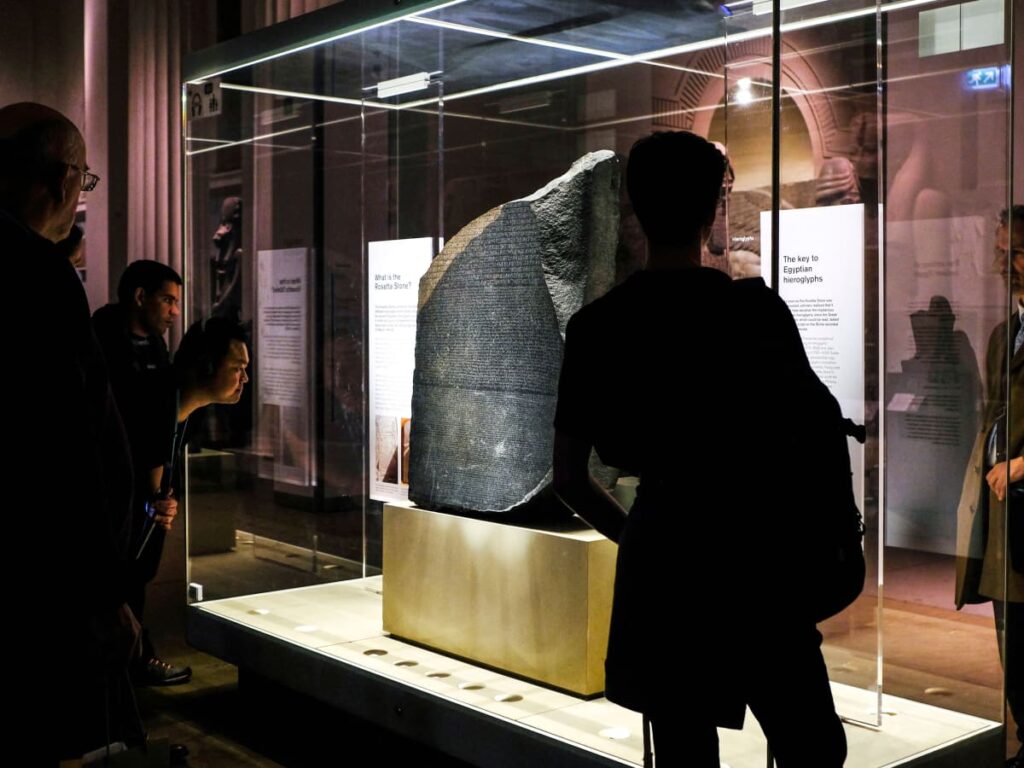Conflicts between the public and museums across America and Europe have only grown as people demand that cultural artifacts that were “stolen” are returned to them. Communities have stated that Western museums are “disrespecting” their traditional cultures by holding them, rather than returning them to their true owners. However, these conflicts have finally centered upon a specific artifact, a gray slab of stone that has helped us decipher the drawings of a massive ancient civilization: the Rosetta Stone.

What is the Rosetta Stone?
The Rosetta Stone, found in 1799 in the modern day city of Rashid, is a stone that has helped historians translate between ancient languages and inscriptions. During Napoleon’s invasion of Egypt, the stone was uncovered while constructing fortifications. It was in the hands of the French until 1801, when the French were defeated by the British and the Rosetta Stone was in the possession of Britain, hence why it is displayed in the British Museum.
The stone is inscribed with the same text in three different languages: Hieroglyphic, Demotic, and Greek. The inscriptions itself are about an Egyptian pharaoh named Ptolemy V, and his time as ruler. Historians merely had to translate between these three texts, starting with the Greek translation, and from there they matched the hieroglyphics with the Greek translation to find the meaning of each hieroglyph!

Reclaiming Their Heritage
Monica Hanna, the dean for the Academy of Science and Technology in Aswan, has stated that the British museum holding this artifact is symbolic of “Western cultural violence” against Egypt. She is one of the leaders of the petition to return the Rosetta Stone to Egypt, and she has the support and signatures of 2,500 people so far.
Archaeologists have made similar movements before to force museums to return artifacts to their original owners. However, such movements have been effective, like the movement in New York for the Museum of Modern Art to return any Jewish artifacts stolen by Nazis. These results have only prompted other communities to fight against museum authorities to protect their history.
The Legal Battle Ensues
The museum has stated that they would like to collaborate with Egyptian authorities, and they had originally planned to create a new museum exhibit displaying older Egyptian artifacts, including the Rosetta Stone. However, the Egyptian government also made a statement that Egyptian artifacts boost their tourist industry, being another incentive for Egypt to want the Rosetta Stone back. However, handing over the stone is at the discretion of the British Museum, causing issues over whether this artifact was acquired illegally or not.
So what now?
Egyptologists and archaeologists continue to argue as to why the Rosetta Stone should be returned to its origin country, and the legal process to attain the Rosetta Stone has only grown more complicated. The decision weighs heavily on the Egyptian Government and the British Government, as they strive to find the rightful owners of this important artifact.


